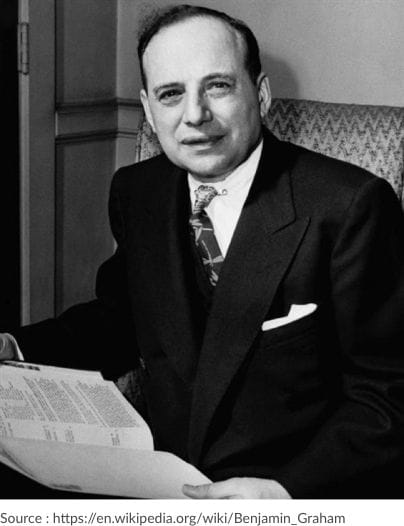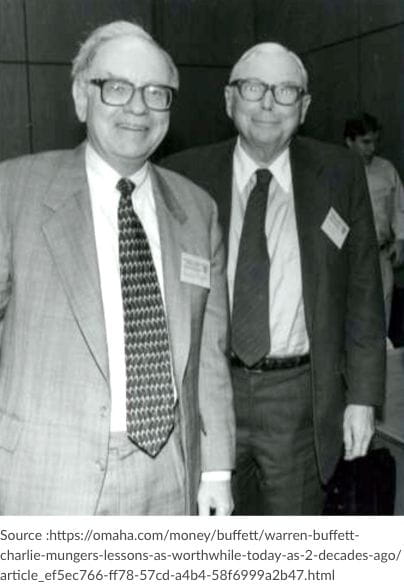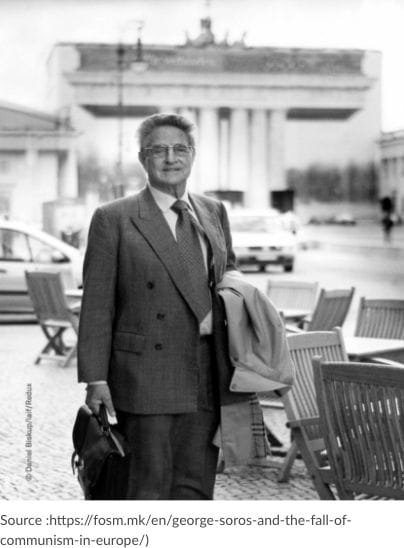2020 will be a year for the history books. We are facing our first pandemic in a century, and economic headwinds not seen in generations. However, amid all these uncertainties, there are opportunities. Who has heard of Zoom before the pandemic? Now it has become part of our everyday life. Malaysian glove manufacturers are reporting incredible growth and on-line businesses and delivery services are booming.
As for stock investors, Mr Market has taken them on a roller coaster ride. What is in store for us in the coming few months? No one knows. What should we do if we have some money to invest? We can look to some of the greatest investors of our time for some guidance.
Investing usually refers to lower risk investment based on fundamental analysis with a long term investment horizon. Speculating seeks to make high returns by making short-term, highly leveraged bets. However, speculating isn’t exactly gambling as speculators make their bets based on hypotheses arising from their research.

(Value investor)
Benjamin Graham is known as the Father of Value Investing and wrote the investment classic The Intelligent Investor. He was Warren Buffett’s mentor.
As a fund manager, he experienced the great market crash of 1929. Before the crash, the fund he was managing was outperforming the Dow Jones return from 1926 to 1928. After the crash, his value investment philosophy continued to help him beat the market’s performance by 10% from 1929 to 1932. Unfortunately, this was nothing to celebrate as his fund lost 70% of its value versus the Dow Jones loss of 80%.1
His mistake was becoming complacent and overconfident in the wake of the prolonged bull market from 1924 to 1929. He was highly-leveraged, believing that such a strategy would continue to be successful as long as he invested in value stocks that would recover their value.
He learned his lesson and would become a very conservative investor, eschewing debt and advocating for a margin of safety when investing. However, by sticking to the principles of value investing - maintaining consistency and discipline, and taking a long term view, he recovered the value of his investor’s investments by 1935. He continued on to an illustrious career, chalking up average performance return of 20% versus the market’s average annualised return of 12.2% from 1936 to 19562, cementing his status as an investment legend.
Value investing is a strategy for picking stocks that are trading significantly below their intrinsic value. These stocks must have good fundamentals which will eventually be recognised by the market, driving prices up. Growth investing is a stock-picking strategy that focuses on searching for companies with high growth potential. Growth investors are not as concerned with buying stocks below intrinsic value. Instead, they focus on future increases in value.

(Hybrid Value and Growth investor)
Warren Buffett is possibly the most famous investor of our time. Lesser known is his partner Charlie Munger. Together at Berkshire Hathaway, they combined the best of Benjamin Graham’s value investing philosophy and Philip Fisher’s growth investing philosophy to achieve their legendary investment results. If you had invested USD1,000 with Warren Buffett in 1965, it would be worth more than USD27 million today. The same amount invested in the S&P 500 in 1965 would yield roughly USD200,000.3
At Berkshire Hathaway, Buffett and Munger look for businesses with great fundamentals and buy them at bargain prices. They only buy into businesses they understand well (what they call their circle of competence). Like Graham, they take a disciplined approach, willing to do nothing until an investment that meets their criteria comes along.
If you look into Berkshire Hathaway’s actions over the past three big market crashes in 1987, 1999-2000, and 2008, you will see incredible discipline in action. Berkshire Hathaway did not do anything during the 1987 crash because there were no good buys, missed out on the dot.com bubble because technology stocks were outside their circle of competence and entered the market in 2008 when everyone was fleeing. Now in this crisis, they are sitting on record levels of cash while watching the situation unfold.
Mutual funds or unit trust funds are regulated investment products offered to the public.
Mutual funds can be actively or passively managed. Hedge funds are private investments that are only available to high net worth and accredited investors. Hedge funds use higher-risk strategies to achieve higher returns for their investors.

(Speculator)
Unlike the other great investors we have mentioned, George Soros is a short-term speculator who places little importance on a company’s fundamentals. He founded the hedge fund Quantum Fund, known for a philosophy centred around making huge, bets on the movements of currency rates, commodity prices, stocks, bonds, derivatives, and other assets. These bets are based on macroeconomic analysis and Soros’ theory of reflexivity - that market participants are not rational and directly influence market fundamentals leading to booms and busts that present investment opportunities.
He is most famous for a 1992 trade, where he bet that the British Pound would significantly depreciate over a single trading day. His bet paid off to the tune of USD1 billion4 and earned him the moniker “The Man Who Broke the Bank of England.” Despite his great successes, not every bet George Soros made has worked in his favour. In 1987, he predicted that the U.S. markets would continue to rise. His fund lost $300 million during the crash. He also lost $700 million in 1999 during the tech bubble when he bet on a decline.
Despite some of his big publicised losses, George Soros’ Quantum Fund has returned almost 20% annually from 1973-2011.6 How has he been so successful at speculating where so many others have failed? There is a method to his madness. According to Stan Druckenmiller, who worked with him at the Quantum Fund, the most important thing he learned from Soros was that it’s not important whether you’re right or wrong. It’s how much you make when you’re right, and how much you lose when you’re wrong. Thus, Soros believes in betting big when he believes he’s right. However, contingency plans are always in place, and Soros is willing to walk away when he is wrong. Soros himself says “I’m only rich because I know when I’m wrong… I basically have survived by recognizing my mistakes.”

Despite all the difference in their investing styles and philosophies, there are some philosophies that all the great investors share. Let’s look at the investing principles that have stood the test of time, and start applying them as we go on our own investing journey.
Take a long term view
All the above investors, except George Soros, take a long term view. If you believe in the long term growth of a business, or a country or a sector, then you shouldn’t be distracted by short term declines in prices. As investors, we should aim for at least a 3 to 5-year horizon for our investments to bear fruit.
Don’t follow the crowd
All the investors, without exception, are willing to be contrarians. They have their own points of view based on their research. Warren Buffett weathered doubt and criticism when Berkshire Hathaway missed out on the dot.com boom. But he stuck to his guns and have proven his critics wrong.
Don’t lose sight of your investment goals
Be very clear about your investment goals. If you are clear about what you want to achieve, and the time frame you need to do so, you will not be distracted by the market.
Don’t risk more than you can afford
It may be tempting to invest all you have or borrow to invest. However, even the best investors pay the price of high leverage as evidenced by Benjamin Graham’s big losses after the 1929 market crash. You don’t want to be in a desperate position when the market turns on you.
Admit to mistakes and move on
It is human nature not to want to lose money. The pain of a loss is more than the joy of a gain. However, whether you are trading, speculating or investing, you need to know when to cut your losses when you get things wrong. Aim to lose less when you are wrong and make more when you are right.
Learn to be disciplined
Know what your long term goals, your risk appetite and your criteria for investing. If no investments are meeting your criteria, it is perfectly fine to do nothing. What the great investors have in common is knowing that sometimes the best thing to do is to do nothing.
Know your circle of competence
Don’t invest in what you don’t understand. For some, it may be technology stocks. For others, it may be currencies or cryptocurrencies, and for others still, it may be individual stocks. Know yourself, know your strengths and limitations and build your investment strategy around them.
Keep some cash on hand
Warren Buffett always keeps a bit of cash on hand, giving him opportunities to swoop in on bargains when the market crashes, such as in 2008. Berkshire Hathaway is now sitting on a record USD137 billion as at March 20207, no doubt waiting for bargain buys to come onto the market.